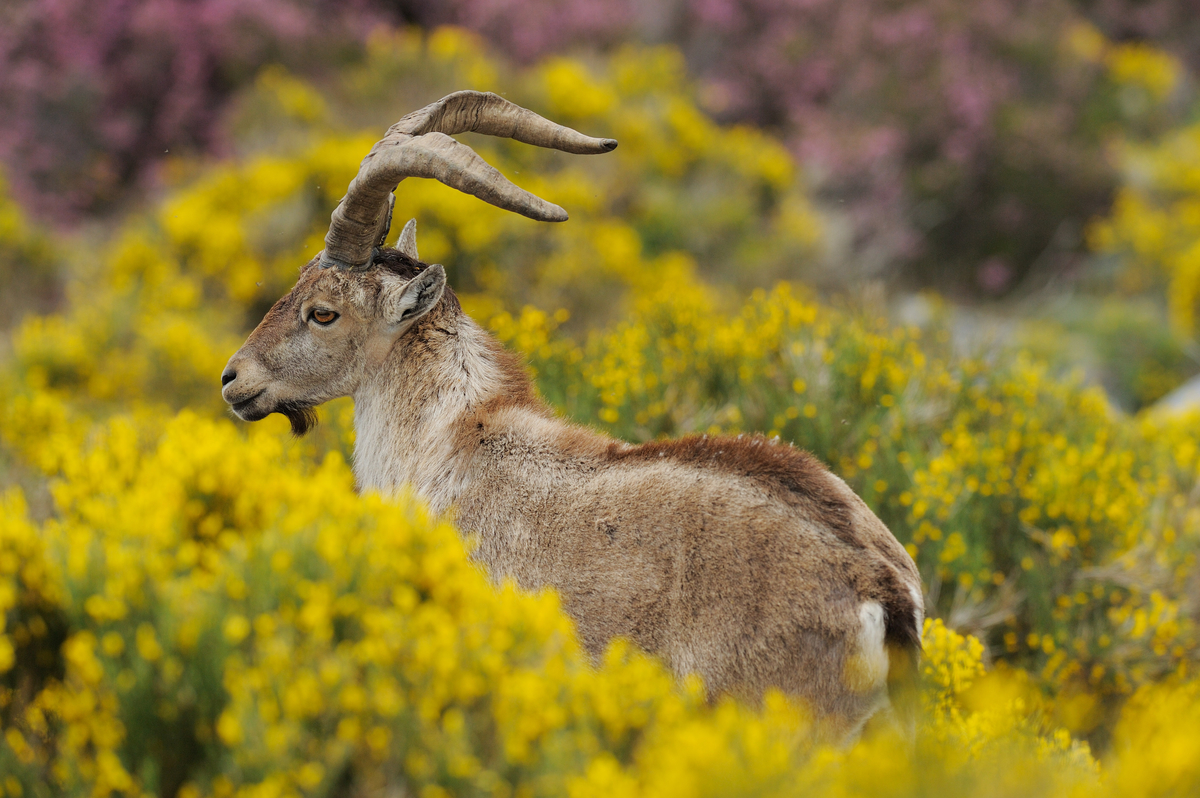A student of the University of Porto, Inês Silva, who were attending her Master’s in Economics and Environmental Management, developed her master’s dissertation throughout the 2021/2022 academic year in partnership with Rewilding Portugal, exploring the potential of the Iberian ibex in landscape management.

The Iberian ibex (Capra pyrenaica) is a herbivorous species, which in ancient times inhabited all rugged areas of the landscape of the Iberian Peninsula, but which in the mid-twentieth century and due to habitat loss, hunting and also competition with domestic herds disappeared from several areas of their historical distribution.
Currently, due to reintroduction programs and the abandonment of marginal lands, the species has been recovering over time. In Spain, it has returned and ins now abundant in several areas, in France it has returned to the Pyrenees and in Portugal it can only be found for now in the Peneda-Gerês National Park and, although there are potentially many areas in Portugal where the species can successfully return, there are currently no official plans for the expansion of the Iberian ibex in Portugal.
The study explored, through a simple analysis, the conditions for the Iberian ibex to return to various areas in Portugal and the ecosystem services that this animal can perform in that same landscape. The main objective of the thesis was therefore to analyze the potential of the Iberian ibex to replace and complete landscape management measures developed through this role as a forest cleaning brigade, and thus save costs in this landscape management in our country, as in the clearing of weeds, cutting of herbs and shrubs, that have been carried out and that are highly expensive, and also for its important role in seed dispersal, among many other advantages that have been systematized in a list of about twenty actions that can be consulted at detail in this thesis.
At an ecological level, the Iberian ibex can prevent and mitigate the effect of wildfires, as it can graze in very rugged areas and promote natural regeneration through the aforementioned seed dispersal. It also has the potential to play an important role in the life cycle, as it can become prey for the Iberian wolf, the Golden eagle and even the Iberian lynx.
It was then concluded that the reintroduction of the Iberian ibex can be a great ecological restoration measure, due to the various functions it plays in the ecosystem, and also a good investment in landscape management, as it allows to avoid costs that occurred until now and in the long term, which may prove to be a very sustainable investment.
The master’s thesis can be consulted here.